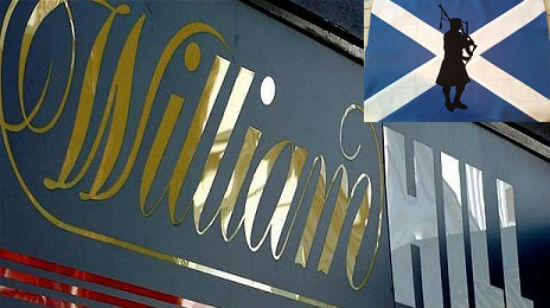Update to an article first published on 23 July, 2014.
The Declaration of Arbroath, signed in Scotland in 1320 stated, amongst other things, that:
‘It is in truth not for glory, nor riches, nor honours that we are fighting, but for freedom..’ (rendered into modern English).
Whilst this nearly 700-year-old document is echoed by modern sentiment today, nonetheless, much of the pro-independence campaign has focused on the economic benefits that full Scottish independence would bring…
OK - In case you didn’t know, this September 18th, a referendum will be held in Scotland to decide that country’s future and more specifically, if it will secede from the United Kingdom and become a fully-independent country.
And already the prospect of an independent Scotland for the first time since the Act of Union in 1707 (or, if you like, the Union of Crowns a little over 100 years earlier when the Scottish King James VI became King of England as well) has captured the gaming industry’s imagination.
People have been betting astronomical sums — we’re talking hundreds of thousands of pounds (or ‘punds’ as they’re likely to be known if Scotland becomes independent but remains in currency union with the rest of the UK).
Shortening odds on ‘No’, lengthening on ‘Yes’
Interestingly enough for an issue which is likely to arouse emotions, the biggest reported bets seem to have been placed on a ‘No’ vote (the Referendum is a straight yes/no question, and is open to all UK nationals resident in Scotland, as well as EU citizens and British Commonwealth citizens resident there).
We say interestingly because, in the opinion of this writer, the ‘Yes’ campaign seems to have been not only much higher-profile, but also richer in ideas than the ‘Nos’ — properly called the ‘Better Together’ campaign.
At the same time, it seems that the ‘Yes’ camp has already peaked - a televised debate between the leaders of the respective campaigns is widely thought to have shown the ‘No’ camp’s representative in the better light.
There are also generational divides to take into account as well - ‘Yes’ is very popular amongst the middle aged; older people often tend to be more conservative and the ‘selfie’ generation has been criticized as being apathetic (?!).
A good, long list of UK celebrities as diverse as Mick Jagger and Helena Bonham-Carter has also penned an open letter urging a ‘No’ vote - by no means all of the signatories being English (in fact a few of them are Scots).
That said, a bet on a ‘No’ vote would yield a lot less at the time of writing; for instance the largest vote placed to date, not only on the Referendum but reportedly the biggest ever bet on a political bet ever placed in the UK, initially stood at a whopping £400,000.
However since then the same bettor has increased his or her stake to £600,000- do they know something we don’t?!
This increase in the bet makes it the largest one ever to be placed on a political event, not only in the UK, but worldwide, having surpassed the previous record of AUS$750,000 (£419,000)  placed on the outcome of the Australian general election last year.
As we reported before, the odds have since shortened on a ‘No’ vote - whereas the punter got 1:4 with William Hill on the initial £400,000, the extra £200,000 was placed at a price of 1:6, ‘only’ yielding £133,000 in total should a ‘No’ vote be the result.
Contrast these odds with the odds offered by William Hill for a ‘Yes’ vote — these have conversely been lengthening  and are at 11:2 with Hill’s — and you can see at least what the (predominantly English-based) betting companies offering odds on the event, think of the likely outcome.
Indeed the other big players in the market tell pretty much the same story — Betfair is offering as much as 29:5 on a ‘Yes’ vote (in other words, a bet of £100 would payout winnings of £580 should the favored outcome emerge).
Incidentally William Hill’s odds on a ‘No’ vote have shortened even more - they are quoting 1:10 at the time of writing (so the £100 bet mentioned above would yield a measly £10).
It will be interesting to see, not only what happens in September, but also the growth of ‘political betting’ in the future — for instance at the time of writing it’s possible to place bets on other aspects of the Scottish Referedum, such as voter turnout or the longer-ranging implications like EU membership.

